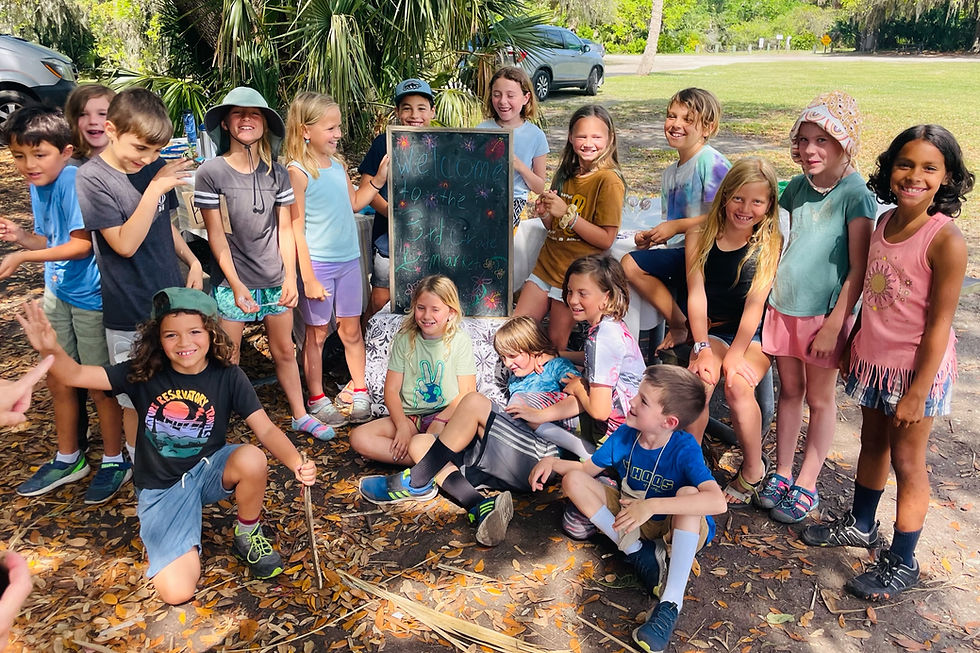Third Grade

During the year, your child's teacher will plan field trips to enhance what's being taught in class. Advance notice will be given and we encourage parents to plan to attend whenever possible.
Depending on the needs of an individual child, and the homeschooling plan the family is following, more study may be needed at home to compliment the classes chosen at Spring River. Talk to your teacher or the Program Director for more information. At Spring River, the parents are ultimately in charge of their children's education, and the school is here to supplement and support.
Spring River's third-grade curriculum provides the student with the opportunity to learn about three essential, practical requirements for all of humankind—how we work with nature to provide ourselves with food, clothing, and shelter.
The 3rd-grade theme of the Study of Practical life and Stories from Ancient History - including Hebrew stories and other creation traditions from around the world- builds on the natural curiosity of a child at this age.
Classroom skills to be honed in third grade are building confidence and self-image.
As the children in the third grade enter their ninth year, they start to see the world differently. No longer are they content to be a part of life without doubts and questions. A nine-year-old can feel him/herself growing up and separating from his/her parents, and becoming part of the outer world. The child becomes more independent and begins to question all that was previously taken for granted. The third-grade curriculum is designed to meet the child’s new interests and concerns at this age.
Main Lesson & Academic Subjects
-
Math: Higher multiplication tables; division; weight, measure, money and time; review of all four processes; multiplication; problem-solving; place value to 10,000s; estimating; mental math; word problems
-
Language Arts: Dive deeper into parts of Speech; group and Independent reading; Punctuation, Mechanics (verbs/verb tenses); Beginning cursive; Memorization and recitation of verses, poetry and song; encoding with single and two syllable words; decoding with all phonics rules; along with artistic renderings, introduce paragraph structure and writing to demonstrate understanding of stories/text.
-
Form Drawing
-
Science: Introduction to Climate Studies, housebuilding, farming, and gardening.
-
Geography: Home and School Surroundings
-
History & Social Studies: Study of practical life and occupations (farming, housing, clothing); Maker's Market where students handmake their own products to sell as an in-school market to families and other students. (ties into math)
-
Class Play: Each class will practice and perform a class play or another class activity tied to the curriculum shared with class families.
Special Subjects:
-
World Language: Continuing foreign language study of Spanish with dialogue, dramatization, songs, games, and simple written work.
-
Handwork: Weaving and Crochet
-
Sculptural Arts: Beeswax & Clay modeling
-
Painting: Painting and Drawing
-
Music: Singing in harmony, drumming, and introduction to instruments including the violin.
-
Movement: Games featuring the individual within the group


